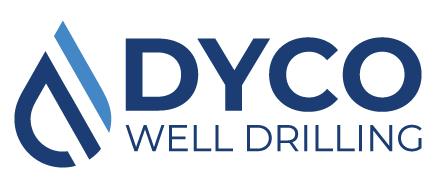Water is one of the most important resources that we need for our survival. It is essential for drinking, cooking, cleaning, and many other daily activities. However, not all properties have access to clean and reliable water sources. If you’re looking to ensure a steady and cost-effective water supply, then water well drilling might be the smartest investment you’ll make. Not only does it provide a sustainable source of water, but it also offers a range of benefits that can save you money in the long run. In this article, we’ll explore the reasons why water well drilling is a wise investment for your home or business, and we’ll provide a cost analysis to help you make an informed decision.
What is Water Well Drilling?
Water well drilling is the process of drilling a hole in the ground to access underground water sources. These wells are typically used for domestic, agricultural, and industrial purposes. The depth of the well depends on the geology of the area and the water table’s depth. Once the well is drilled, a pump is installed to extract the water from the well.
Benefits of Water Well Drilling
There are many benefits to having a water well on your property, including the following:
Cost Savings
One of the most significant benefits of having a water well is the cost savings. Municipal water supplies can be expensive, and the cost of water can increase over time. With a water well, you have control over your water supply and can save money on your water bill.
Reliable Water Supply
Another benefit of having a water well is the reliability of the water supply. Municipal water supplies can be affected by droughts, water restrictions, and other factors that can impact the water supply. With a water well, you have a reliable water source that is not affected by external factors.
Better Water Quality
Water from a well is typically of higher quality than municipal water supplies. Municipal water supplies are treated with chemicals to remove impurities, which can affect the taste and quality of the water. Water from a well is naturally filtered through the ground, which results in better-tasting water that is free of chemicals.
Environmentally Friendly
Water wells are an environmentally friendly way to access water. They do not require the use of chemicals or other treatments, which can be harmful to the environment. Additionally, water wells can help reduce the demand for municipal water supplies, which can help conserve water resources.
Cost Analysis – Comparing the Costs of Drilling a Well Versus Municipal Water Supply
When considering the cost of drilling a well versus using a municipal water supply, there are several factors to consider.
Upfront Costs
The upfront cost of drilling a well can vary depending on the location, depth of the well, and other factors. However, the cost of drilling a well is typically less than the cost of connecting to a municipal water supply.
Ongoing Costs
The ongoing costs of a water well include maintenance and electricity costs for the pump. These costs can vary depending on the size of the well and the amount of water used. Municipal water supplies typically have higher ongoing costs due to water usage fees and other charges.
Return on Investment
While the upfront cost of drilling a well may be higher than connecting to a municipal water supply, the long-term return on investment can be significant. With a water well, you have control over your water supply and can save money on your water bill over time. Additionally, the value of your property may increase with the addition of a water well.
Factors that Affect the Cost of Drilling a Well
Several factors can affect the cost of drilling a well, including the following:
Location
The location of the well can affect the cost of drilling. The geology of the area, the depth of the well, and the distance to the nearest power source can all impact the cost.
Size of the Well
The size of the well can also impact the cost. Larger wells require more drilling, which can increase the cost of the project.
Type of Pump
The type of pump used in the well can also impact the cost. Submersible pumps are typically more expensive but are more efficient and require less maintenance.
Maintenance and Upkeep of a Water Well
To ensure that your water well continues to provide clean and reliable water, regular maintenance and upkeep are required. This includes monitoring the water quality, testing the well for contaminants, and maintaining the pump and other equipment. It’s essential to work with a reputable well drilling company that can provide ongoing maintenance and support for your well.
The Environmental Benefits of Drilling a Well
Water wells offer several environmental benefits, including the following:
Reduced Dependence on Municipal Water Supplies
Water wells reduce the demand for municipal water supplies, which can help conserve water resources.
No Chemical Treatment Required
Water wells do not require chemical treatments, which can be harmful to the environment.
No Energy Required for Treatment and Distribution
Municipal water supplies require energy for treatment and distribution. Water wells do not require this energy, making them a more environmentally friendly option.
The Process of Drilling a Well – What to Expect
The process of drilling a well typically involves the following steps:
Site Assessment
The well drilling company will assess the site to determine the best location for the well.
Drilling
The drilling process begins, and the well is drilled to the desired depth.
Installation of Pump and Equipment
Once the well is drilled, the pump and other equipment are installed.
Testing and Water Quality Assessment
The well is tested to ensure that it is providing clean and reliable water.
Finding a Reputable Well Drilling Company
To ensure that your water well project is successful, it’s essential to work with a reputable well drilling company. Look for a company with experience in drilling wells in your area, and check their references and reviews. Additionally, make sure that they are licensed and insured to protect you and your property.
Conclusion – Why Water Well Drilling is a Smart Investment for Your Property
Water well drilling is a smart investment for any property owner looking to ensure a reliable and cost-effective water supply. With a water well, you have control over your water supply, and you can save money on your water bill over time. Additionally, water wells offer several environmental benefits and can increase the value of your property. To ensure that your water well project is successful, it’s essential to work with a reputable well drilling company and invest in regular maintenance and upkeep.

